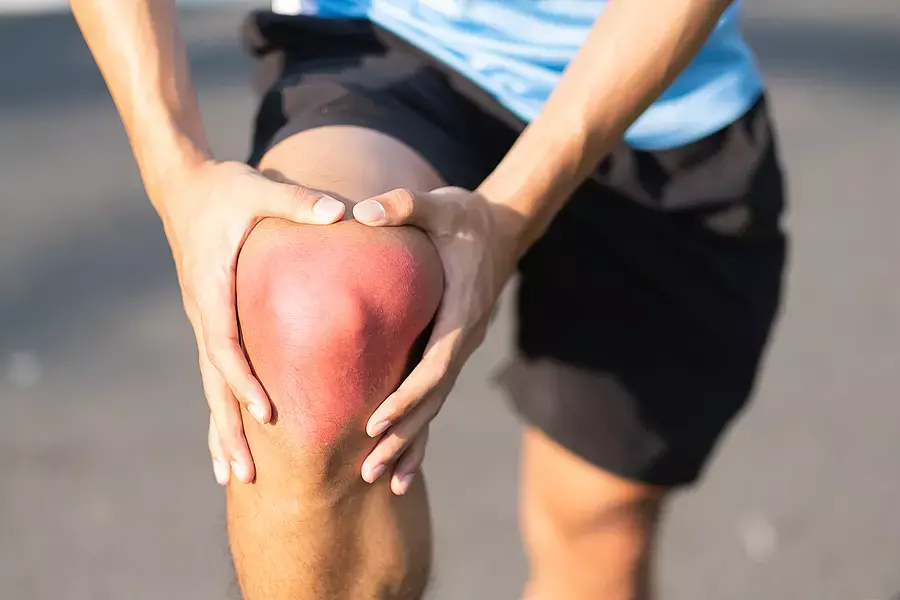- Home
- Medical news & Guidelines
- Anesthesiology
- Cardiology and CTVS
- Critical Care
- Dentistry
- Dermatology
- Diabetes and Endocrinology
- ENT
- Gastroenterology
- Medicine
- Nephrology
- Neurology
- Obstretics-Gynaecology
- Oncology
- Ophthalmology
- Orthopaedics
- Pediatrics-Neonatology
- Psychiatry
- Pulmonology
- Radiology
- Surgery
- Urology
- Laboratory Medicine
- Diet
- Nursing
- Paramedical
- Physiotherapy
- Health news
- Fact Check
- Bone Health Fact Check
- Brain Health Fact Check
- Cancer Related Fact Check
- Child Care Fact Check
- Dental and oral health fact check
- Diabetes and metabolic health fact check
- Diet and Nutrition Fact Check
- Eye and ENT Care Fact Check
- Fitness fact check
- Gut health fact check
- Heart health fact check
- Kidney health fact check
- Medical education fact check
- Men's health fact check
- Respiratory fact check
- Skin and hair care fact check
- Vaccine and Immunization fact check
- Women's health fact check
- AYUSH
- State News
- Andaman and Nicobar Islands
- Andhra Pradesh
- Arunachal Pradesh
- Assam
- Bihar
- Chandigarh
- Chattisgarh
- Dadra and Nagar Haveli
- Daman and Diu
- Delhi
- Goa
- Gujarat
- Haryana
- Himachal Pradesh
- Jammu & Kashmir
- Jharkhand
- Karnataka
- Kerala
- Ladakh
- Lakshadweep
- Madhya Pradesh
- Maharashtra
- Manipur
- Meghalaya
- Mizoram
- Nagaland
- Odisha
- Puducherry
- Punjab
- Rajasthan
- Sikkim
- Tamil Nadu
- Telangana
- Tripura
- Uttar Pradesh
- Uttrakhand
- West Bengal
- Medical Education
- Industry
Sarcopenic obesity may increase risk of knee osteoarthritis, finds research

A new study published in the PLOS ONE journal showed that in middle-aged and older Chinese people, obesity, sarcopenic obesity, and low muscular strength were linked to an increased risk of occurrence of symptomatic knee osteoarthritis (OA) seven years later.
The growing number of people at risk for osteoarthritis and other health issues is a result of the changing aging demographics and the rising incidence of obesity. About 80% of all cases of OA worldwide are caused by knee OA, which is a common ailment. Sarcopenia is a physiological phenomenon that naturally happens with aging and is characterized by a loss of muscle mass and strength that can be increased by co-morbid illness states.
Also, obesity raises the risk of sarcopenia due to ectopically accumulated lipids and chronic inflammation in skeletal muscle. This study examined whether reduced muscular strength may mediate the effects of obesity on the start of knee OA in middle-aged and older Chinese populations, as well as the possible impacts of muscle strength and sarcopenic obesity on the incidence of knee OA.
The China Health and Retirement Longitudinal Study yielded a total of 12,043 participants. Using Poisson regression models, the effects of sarcopenic obesity on the development of knee OA were computed. The mediating proportion of muscular strength on the relationship between obesity and incidence of knee OA was estimated using mediation analysis.
A total of 12,043 people were included in the trial, and 2,008 of them developed knee OA. Poisson analysis showed a causal relationship between the start of knee OA and both abdominal and overall obesity. The participants who had the greatest degree of normalized grip strength were 0.33 times less likely to experience incident knee OA than those in the control group, and chair-rising time was linked to a 0.65-fold higher risk of incident knee OA.
Similar findings were found via sensitivity analysis. When compared to the reference group, the participants with sarcopenic obesity had an approximately twofold increased incidence of acute knee OA. The relationship between obesity and the incidence of knee OA was mediated by normalized grip strength and chair-rising time. Overall, the study found that incidence-symptomatic knee OA is influenced by sarcopenic obesity and low muscular strength in middle-aged and older Chinese individuals.
Source:
Yan, L., Ge, H., Wang, Z., Shen, A., Xu, Q., Jiang, D., & Cao, Y. (2024). Roles of low muscle strength and sarcopenic obesity on incident symptomatic knee osteoarthritis: A longitudinal cohort study. In S. Agostini (Ed.), PLOS ONE (Vol. 19, Issue 10, p. e0311423). Public Library of Science (PLoS). https://doi.org/10.1371/journal.pone.0311423
Neuroscience Masters graduate
Jacinthlyn Sylvia, a Neuroscience Master's graduate from Chennai has worked extensively in deciphering the neurobiology of cognition and motor control in aging. She also has spread-out exposure to Neurosurgery from her Bachelor’s. She is currently involved in active Neuro-Oncology research. She is an upcoming neuroscientist with a fiery passion for writing. Her news cover at Medical Dialogues feature recent discoveries and updates from the healthcare and biomedical research fields. She can be reached at editorial@medicaldialogues.in
Dr Kamal Kant Kohli-MBBS, DTCD- a chest specialist with more than 30 years of practice and a flair for writing clinical articles, Dr Kamal Kant Kohli joined Medical Dialogues as a Chief Editor of Medical News. Besides writing articles, as an editor, he proofreads and verifies all the medical content published on Medical Dialogues including those coming from journals, studies,medical conferences,guidelines etc. Email: drkohli@medicaldialogues.in. Contact no. 011-43720751


